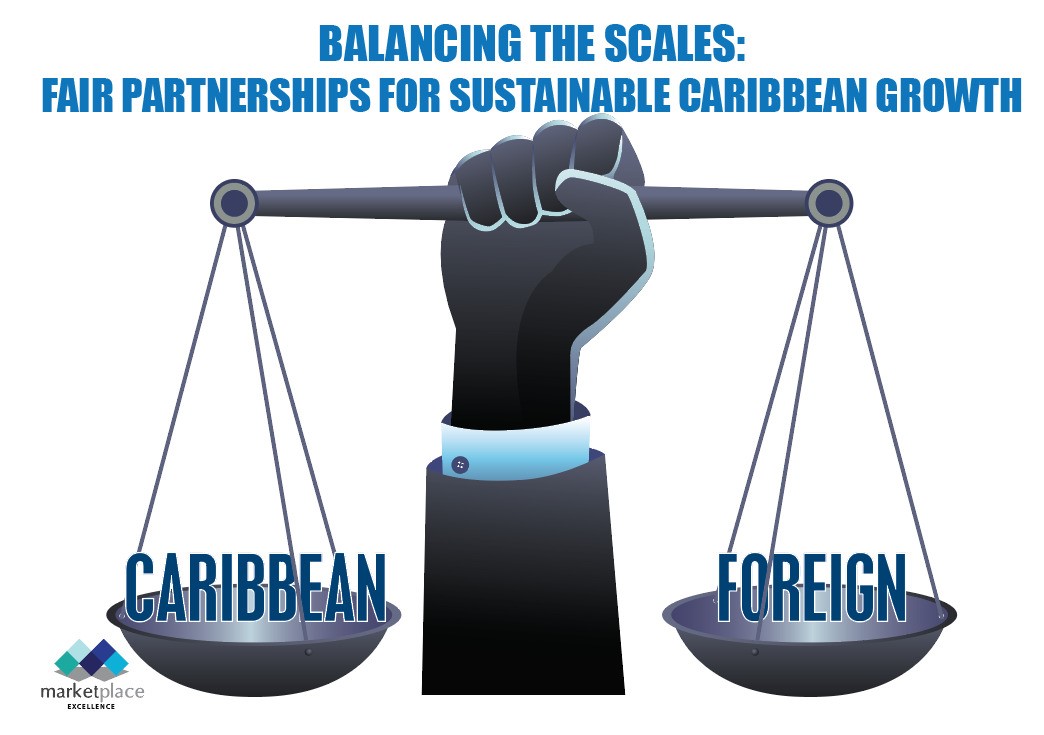A Column by Basil Springer (January 10, 2025)
“For we are taking pains to do what is right, not only in the eyes of the Lord but also in the eyes of man.” – 2 Corinthians 8:21
Over the last two weeks, we have explored the global concept of Smart Partnerships and their potential to foster resilient economic growth.
One reader from Trinidad and Tobago reached out after the first piece, sharing: “Your column was enlightening. I am sending it by email to both the government and the opposition members of the TT parliament individually, who have both failed to serve the interest of the citizens in preference to serving harmony and results in the best interest of a homogeneous society because they are politically opposed for personal reasons. I will see their response and, if needed, revert to you for some suggestions as to how we can apply this partnership to the polarized politics of the Caribbean.”
This feedback underscores how critical it is to address the barriers holding back unity and growth in our region.
While reflecting on Smart Partnerships, I have long been concerned about three issues I have seldom addressed in writing.
First is reparations for slavery in the British Commonwealth. Second, there is no recognition of employees’ investments as assets on corporate balance sheets. Too often, financial investors’ contributions are acknowledged, yet employees’ investments are not. Third, the ownership structure of subsidiaries of foreign banks operating in Caribbean countries.
Much has been written about the first issue, reparations for slavery. Though governments have raised their voices, real progress has been limited.
On the second topic, the value of employee investments, some advancements have been made through employee stock ownership plans driven by forward-thinking business owners. However, this approach has not been supported by government legislation.
The third concern focuses on the history of foreign banks establishing personal and commercial banking subsidiaries in the Caribbean over the past 60 years. These local entities operated as partnerships between foreign banks in metropolitan cities and Caribbean nations, but were they truly equitable partnerships?
Caribbean governments of the time might have missed a golden opportunity to secure an ownership stake in these local subsidiaries. The foreign banks contributed expertise, marketing, banking systems, training services, and financial capital. At the same time, local subsidiaries offered a market for banking services, a trainable workforce, and financial capital through local deposits. These elements were the backbone of the partnership between the two entities.
But where did the balance tip? To my understanding, local subsidiaries were 100 percent owned by foreign banks and hence received no recognition for the contribution of local assets.
Annual dividends from these local subsidiaries were paid entirely to the foreign banks in foreign currency, depleting the Caribbean’s foreign reserves—a double whammy for the local economy.
In shaping the future, we must learn from the past. As we advance the concept of Smart Partnerships in 2025 and beyond, we must prioritize fairness, equity, and mutual benefit in every collaboration.
Whether addressing historical injustices, recognizing the value of employees, or rethinking ownership structures, the foundation of true partnerships lies in shared prosperity.
Let us commit to forging alliances that empower all stakeholders – local and foreign alike – ensuring sustainable growth, stronger economies, and a more resilient Caribbean. Together, we can build partnerships that are not only smart but also just.

(Dr. Basil Springer GCM is a corporate governance adviser. His email address is basilgf@marketplaceexcellence.com. His columns may be found at https://www.nothingbeatsbusiness.com).
(Dr. Basil Springer GCM is a corporate governance adviser. His email address is basilgf@marketplaceexcellence.com. His columns may be found at https://www.nothingbeatsbusiness.com).
